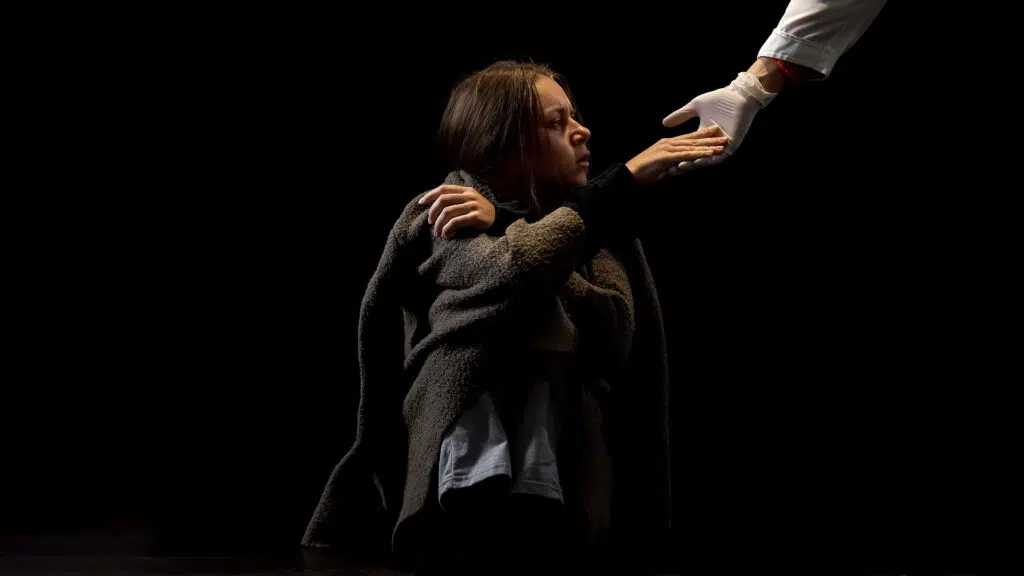Read the latest and greatest from our team
of incredible specialists.

Beach House Recovery Center » Blog » Delirium Tremens Treatment
Quitting alcohol use after heavy, long-term use can be extremely dangerous.
Delirium tremens (DTs) is one of the most severe complications of alcohol withdrawal. Without medical intervention, it can be fatal.
At Beach House Center for Recovery, our licensed clinicians provide around-the-clock monitoring and treatment to ensure your alcohol detox is as safe and comfortable as possible.
We are dedicated to protecting your health, easing your symptoms, and guiding you toward long-lasting recovery.

MedlinePlus says that Delirium tremens, also called alcohol withdrawal delirium, is a medical emergency that occurs during severe alcohol withdrawal.
It is characterized by sudden, dangerous changes in brain activity, causing confusion, hallucinations, seizures, and cardiovascular instability.
While not everyone detoxing from alcohol use will experience DTs, those who do require immediate hospital-level care.
Delirium tremens does not happen in isolation. It signals an alcohol use disorder. Without a medically supervised detox program and ongoing recovery support, these severe symptoms can recur during future withdrawals.
Lasting recovery requires:
Tips for staying sober after DTs:
When the brain is dependent on alcohol to regulate the nervous system, stopping cold turkey can create a dangerous chemical imbalance, leading to:
According to the National Library of Medicine, delirium tremens can be fatal in up to 37% of cases without proper medical treatment and monitoring.
According to an article from The Hospitalist, DTs develop in up to 20% of untreated severe alcohol withdrawal cases. With medical care, the risk drops to about 5%, as noted in a separate study.
Signs of delirium tremens include:
DT typically begins within 48-96 hours after the last drink but can appear up to ten days later.
DTs typically last 3 to 5 days, but severe cases may last longer.
While the DTs timeline varies from person to person, a typical timeline looks like this:
At Beach House Center for Recovery, delirium tremens are treated in a medically supervised setting and include:
We tailor our medications and doses to meet the unique needs of each patient. However, commonly prescribed medications include:
Never attempt alcohol detox without medical supervision. Beach House provides safe detoxification from alcohol (and other drugs) in a comfortable environment, plus post-detox care to minimize relapse risks.
Contact us today to learn more about how we can help you get permanently free from addiction.
If you or a loved one is ready to heal from an alcohol use disorder, taking the following steps is essential for preventing DTs:
Yes. Without proper monitoring and treatment, up to 37% of cases are fatal.
Heavy, long-term drinkers are at risk for DTs, especially for those with prior withdrawal complications.
Yes. Immediate medical attention in a hospital or a specialized detox center is required for DTs.
Yes, but it requires prompt treatment in an accredited addiction recovery treatment center and long-term sobriety support.
Yes. Seizures are a serious complication of alcohol withdrawal and can occur before or during DTs.
Yes. Early intervention with medication can reduce the risk of DTs.
Though it varies from person to person, DTs often begin between 48 and 96 hours from the last drink. However, they can appear up to ten days later.
Whether you’re researching for yourself or a loved one, Beach House can help. We understand that this is a serious time in your life and that the treatment center you choose matters. We want you to feel comfortable and empowered to make the right decision for yourself, a friend, or a family member. This is why a counselor is waiting and available to answer your questions and help put your mind at ease regarding the next steps. Many of the staff at Beach House have walked in your shoes. If you feel you’re ready or want more information about how to help a loved one, we can help today. You can also learn why we are voted the #1 rehab for addiction treatment in Florida.
We accept most major insurance plans and can verify your benefits quickly and confidentially.
We’re committed to helping you access the care you need, our admissions counselors can guide you through your coverage options and available resources.





"*" indicates required fields